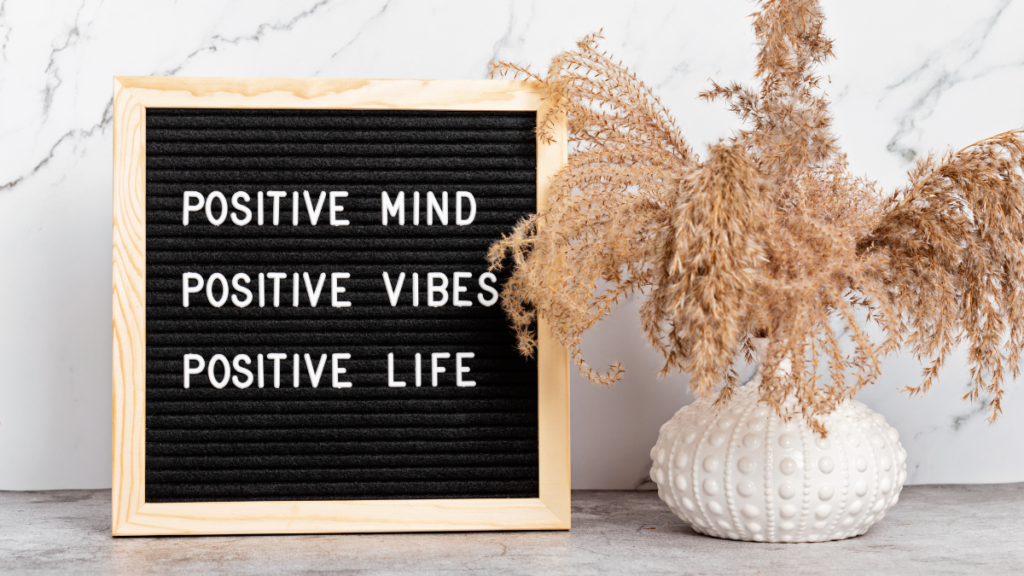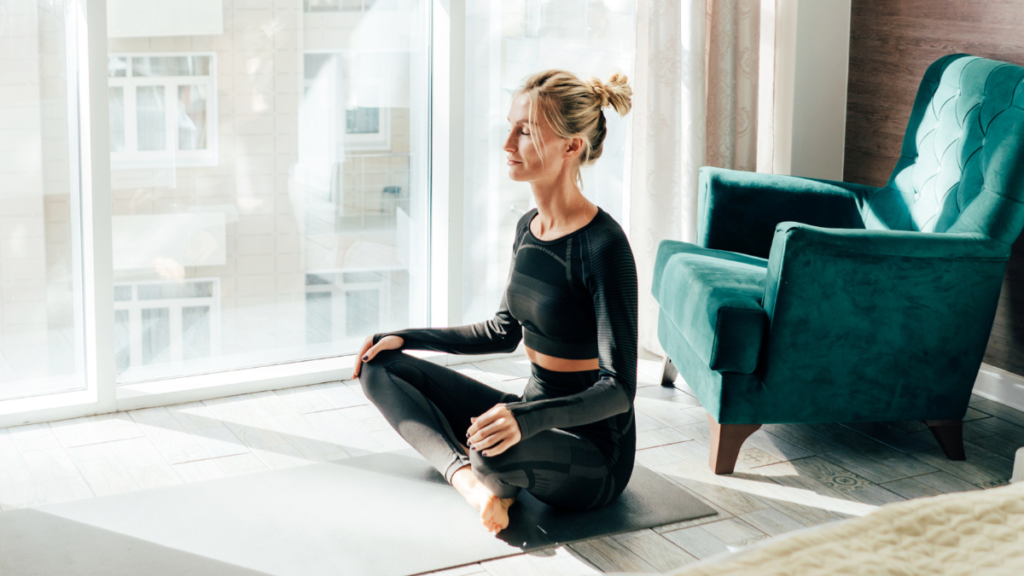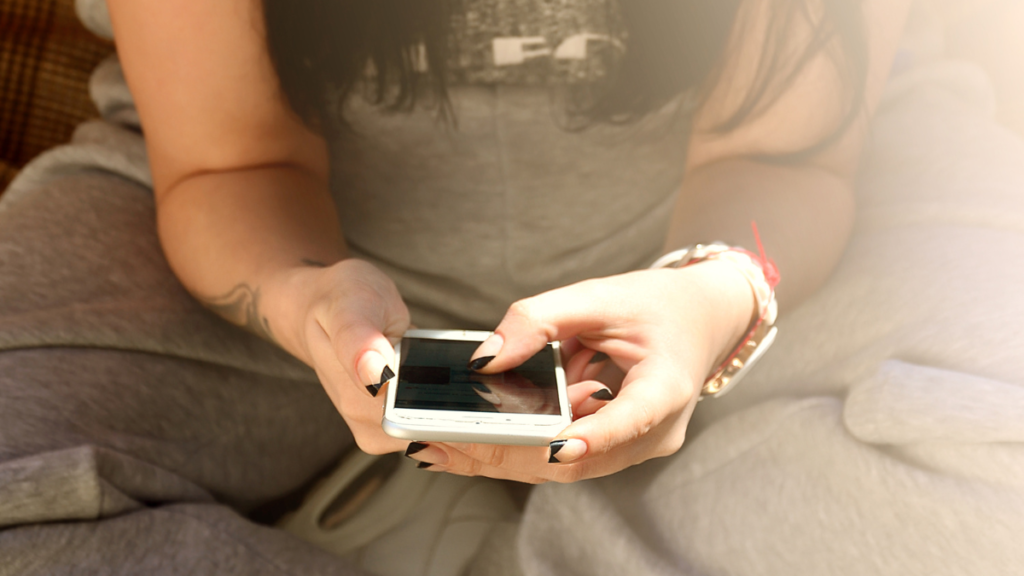This year, “Blue Monday” falls on Monday, 16 January 2023. Every third Monday in January is known as “Blue Monday,” which is supposedly the most depressing day of the year – more on this point later.
This 2023 is certainly shaping up to be a wet one, which can impact people’s moods. We had snow across the UK before Christmas to some people’s delight. Then on Christmas Day and ever since, it seems to have been on-and-off showers for most of the nation. With dark nights still on the horizon until around March and with our twinkly lights and Christmas or festive decorations safely packed away in the loft (or in the garage), things can certainly start to feel gloomier. As the song goes “In the bleak mid-winter frosty wind made moan.”
But what’s the history of “Blue Monday” and what can we do to combat winter gloom?

Where did “Blue Monday” originate?
As with many campaigns that have been popularised in recent times like National Pie Day, Random Acts of Kindness Day, Children’s Book Day, Star Wars Day, National Wine Day, National Biscuit Day, and so many others (yes, these are all real days), many of these “days” began their life in a clever marketing department. Of course, other “days” started out for religious or charitable reasons, but no matter their beginnings, many of them are just lighthearted fun – or exist to raise awareness or for a purpose.
Does “Blue Monday” raise awareness? Kind of! With Blue Monday, Sky Travel, a British travel company popularised and invented the concept as a PR stunt in 2005.
The idea was based on a psychologist’s, Dr Cliff Arnall’s, formula for the most depressing day of the year, which included factors like the weather, debt level after Christmas (although this year might be even more blue thanks to recessionary worries and higher heating and food bills), people breaking New Year’s resolutions already, lower motivation levels, and so forth. Even though many of these factors may be true for those in January, the point is not to let the day be a self-fulfilling prophecy. Is the 16th of January going to be any more “depressing” than any other January day – we hope not. In fact, where we can, it’s best to try and lift our spirits during these darker days.
Many people do, however, suffer in the winter months from seasonal affective disorder (SAD) and not simply a one-day “Blue Monday” 24-hour marketing ploy. We wrote a blog all about SAD and tips to improve your mood if you’re struggling.

How to combat winter blues
In psychology, habits are actions we do over and over that create context-behaviour associations in our memories and we often do these actions without thinking. That’s part of the reason why in the New Year, if you suddenly decide you’re going to change your eating habits, dress better, exercise six days a week, and be more productive at doing your taxes, as an example, you often fail. Adding so many new routines to your life that are not habitual is painful. You don’t have to think about brushing your teeth because it’s a habit. You don’t have to think about waking up in the morning and making your morning coffee either, because that’s a habit too. In short, we can give you many tips and tricks to combat winter blues such as exercising, eating better, meditating, and so forth but if they aren’t activities you enjoy and want to incorporate into your routine habitually, you might not actually do them even if they would make you feel better. Humans are reward creatures!
Here are ways (that will work) to combat winter blues on “Blue Monday” and beyond.

Use positive vocabulary words
When we believe we have control over our lives, we feel happier and more optimistic. However, at work or in life, we may have put things off “until January” after the busy Christmas period resulting in a long to-do list, which can feel overwhelming.
Swapping “negative” words for “positive” or “neutral” words can have a positive impact on our mindsets. If you look at your social calendar or worklist and think “I have an overwhelming amount of things to do,” you’ll feel overwhelmed. But the quick psychological trick is to reframe and say, “I’m very popular right now” or “I can handle one thing at a time.” Instead of saying to yourself, “I’m so exhausted every day” say, “I need to recharge my batteries.” When you start to change your thinking even if it’s ever so slightly, you’ll feel more in control.
If you’re dreading something or putting it off, the same applies. Try to reframe your thoughts and your words to yourself in a more positive light. If you’re nervous about a presentation, you can say that you’re learning to be brave or mastering a new skill. If you’re dreading a social event, you can say you’re developing your ability to small talk.
It may take two or three weeks to start feeling better or even noticing changes, but within about six weeks this new habit will become a permanent happier mindset. Affirmations activate the reward system in our brains and can impact how we experience emotional and physical pain, so Aibileen may have a point – in The Help with her mantra to her ward: “You is kind. You is smart. You is important.”
Tackle one thing at a time, first things first
We may all think we are super at doing lots of things at once, but we aren’t! Doing loads of things at once doesn’t make us super productive, it just increases our chances of making a mistake, according to a 2012 study in the journal Experimental Economics on multitasking.
Try not to multitask your to-dos and tackle one thing at a time, concentrating your whole attention on that. You’ll find you learn to focus better and get more done. If you have a lot to do and don’t know where to start, find the first thing to do and do that! The study notes that people work better focusing on one thing at a time rather than two or more things – seems kinda a no-brainer when you really think about it.

Move more in the day
This isn’t another point on the list where we say to run a 5K or do ten minutes around the block or practice morning yoga and meditation. There’s no secret that so many studies show that there are benefits to exercise on the brain.
A 2017 study published in PLOS One found that people who move more and are active are happier than those who do not. It doesn’t matter what type of activity you do even if it’s just standing up or fidgeting (we are serious, read the study), moving each day is linked to a better mood.
So, the bottom line is to move in ways that you like to move. If you like dancing, dance. If you love running, run. If you hate to exercise but like stretching, do that.
The important thing is to move your body in ways that you like. Plus, it’s good to get into the habit of moving our bodies before we get old as the International Journal of Environmental Research in Public Health in January 2021 noticed in a study on physical performance and frailty in elderly people. Basically, people who moved more also were able to be healthier and more active in their older life.
Stand up straighter and taller
If you slouch when you walk, your body posture actually makes you feel more depressed, according to a 2015 study in the Journal of Behavior Therapy and Experimental Psychiatry. In the study, they had participants slouch and hunch when walking versus standing up tall. Those who took a stroll with hunched shoulders recalled more negative words and experiences than those who stood straighter. So try standing or sitting up straighter to boost your mood. Whether you believe this study or a similar study from 2014 in the journal Clinical Psychology and Psychotherapy about sitting posture, it can’t hurt to stand or sit tall. Plus, it’s something easy to do when you’re at your desk this Blue Monday!

Do something nice for others
According to the results of a 2016 study in the journal Psychosomatic Medicine, there is a “strong association between supportive ties and health.” Doing things for others, volunteering your time, giving to charity, baking brownies for a school bake sale, or even helping your sister with her children, can help you feel a sense of gratitude and make you feel good. When we do things for others, we feel part of a community, forming social connections, which also helps boost our feelings of autonomy.
Smile, though your heart is aching
There are benefits to smiling even if, and especially if, you don’t feel like it. When we act like we are happy, we feel happy. In one study at the University of Cambridge, researchers asked participants to perform a stressful task. In the first group, participants were asked to smile; the second was asked to keep a stoic expression; and the third had to hold chopsticks in their mouths. The results were that those who smiled (even if they didn’t realise it) had lower stress levels when completing the task compared to those with neutral expressions.

Ditch the socials (for a short time)
Even though rationally, we know social media is the highlight reel of people’s lives, people who spend more time on Facebook, for example, tend to be less happy. Perhaps, these people feel like they don’t measure up to their friends, according to this study in the journal Personality and Individual Differences.
American President Theodore Roosevelt (26th US president from 1901 to 1909) said, “Comparison is the thief of joy.” Social media creates a sort of comparison and even though it can be a great way to discover amazing brands and keep up with friends, it can be something that may be sucking the joy from your life so spend some time unplugged from socials.
Unplug from electronics
You may realise when your children, friends’ children, niece/nephew, grandchildren, etc are getting a little cranky or overly addicted to television or their iPads but do you realise when you are? When we spend our days plugged into computers and our evenings scrolling our phones or binge-watching Netflix, we often don’t give our brains time to unplug and relax.
A study published in Proceedings of the National Academy of Science found that even people who use e-readers may struggle to fall asleep or get enough REM sleep that they need versus those who read print books at bedtime.
We aren’t saying to go dark completely during the day but try turning off your devices for at least fifteen minutes before you go to bed or even just during the day. You’ll be surprised how fifteen minutes of mindless starting can really boost your mood.

Go outside when you can
The UK weather is pretty miserable in winter and when you’re stuck in an office (even a home one) all day it can be difficult to get your fifteen minutes of sunlight per day to boost your vitamin D, but people who are connected to nature are happier. A Frontiers in Psychology research review noted that those who are closer to nature are happier people. A study in Evidence-Based Complementary and Alternative Medicine further found that people who walk in forests feel less anxious and less fatigued than those who walked in an urban area. But if you’re a city dweller and don’t have access to local parks, then seeing some greenery and some nature is better than none – just try and keep your phone tucked safely in your pocket or handbag.
Find your greater purpose
People may live happy lives but not meaningful ones. However, those who live “meaningful” lives may be prone to anxiety or stress yet feel rewarded for fulfilling their greater purpose.
Japanese researchers asked over 40,000 people if they felt a sense of “ikigai,” like they had a “life worth living.” The study discovered that people who did feel they had “ikigai” or a life worth living lived longer than those without that sense of purpose and direction.
If you feel good about your life and know what you want, having that vision and focus can make you feel empowered.
So, the ultimate way to feel happier is to find your life’s meaning and purpose. Douglas Adams in Hitchhiker’s Guide said the meaning of life is 42, but we need to find the question!

The takeaways
We hope we have presented a list for creating moments of joy in your life that isn’t an impossible stream of to-dos. Some of these tips like saying positive words to yourself, sitting and standing up taller, and plastering a big old fake smile on your face can genuinely make you feel happier without requiring a mammoth effort. Now, we realise going out in nature daily, exercising, going for a walk, or finding your life’s meaning can take more practice and effort but we hope you find some tips that can help you feel better this Blue Monday. Let us know on Tria Beauty UK’s Facebook or Instagram what tips and tricks work for you when you’re feeling down.
Please be aware that if you’re struggling with your mental health and need to reach out for help you can call 16 123 or text SHOUT to 85258. There’s also a confidential emotional support line here as well as the campaign against living miserably here. You can ring them on 0800 58 58 58. Don’t suffer with your mental health in silence. There are people there to help.
